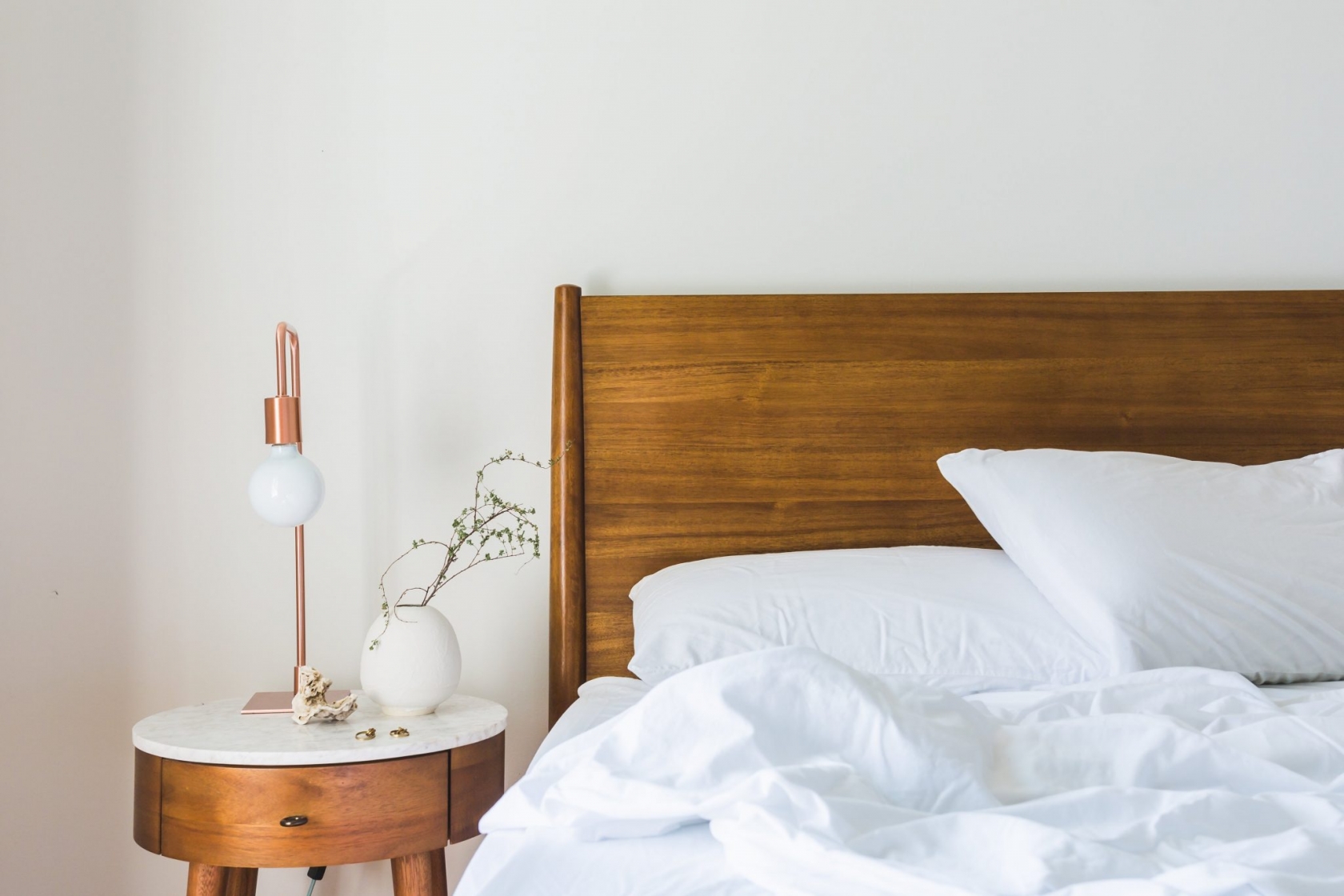
How to get your sleep schedule back on track after Christmas
01/11/2021Struggling to get your sleep schedule back on track over the Christmas break? Here’s how to fix your routine, according to a sleep expert.
It’s safe to say the last couple of weeks haven’t exactly been good for our sleep. Not only are we trying to get back into ‘work mode’ after the Christmas break, but we’re also getting used to life under (another) lockdown and all the stresses that come with it.
While there’s nothing wrong with a few late nights here and there, trying to keep up some kind of schedule and making sure we’re getting enough sleep is important – especially at a time when our mental health is under more strain than ever.
With this being said, fixing our sleep schedules – and recalibrating our lives to suit the nine-to-five – isn’t as easy as it sounds.
So, what can we do to get back into a healthy sleep routine after the Christmas break, despite everything that’s going on right now?
Stylist asked Hope Bastine, psychologist and resident sleep expert at SIMBA, to share her advice on how to recalibrate your sleep routine. From creating ‘sleep pressure’ to picking the right alarm tone, here’s what she had to say.
1.Use gradual adjustment to get your sleep schedule back on track
If you’ve been going to bed late and waking up late over the Christmas break, you might be finding your new 8am wake-up call a bit of a shock. To rectify this, Bastine suggests taking things slowly.
“Pick a goal to wake up and go to bed and micro-adjust your schedule incrementally towards your goal time,” Bastine recommends. “Aim to give yourself two weeks and start with waking up 15 minutes earlier a day.”
2.Choose a mood enhancing alarm tone
“Our mood generally improves progressively throughout the day – and a happy employee generally means a more productive one. If you’re a night owl however, getting up early can offset your mood more than if you’re an early bird,” Bastine explains.
“For night owls, waking up with a jolt can trigger your stress-alter system and set you off on a grumpy start to the day. Set your alarm to your favourite song or a tone that gradually increases in decibels and pace so you can be eased more gently into the day ahead.”
3.Create a sleep sanctuary
Making your bedroom a more comforting and inviting space is a great way to give the room relaxing connotations and make switching off a little easier.
“Night owls are more likely to suffer from Sunday Night Insomnia or the ‘Sunday Scaries’ when there’s a perceived added pressure to feel you must perform at your best on Monday morning,” Bastine explains.
“To counteract this, try to make your bedroom environment the most enticing space and save all your favourite relaxing activities until the end of the day to make it a place you want to be rather than a space to avoid.
“Ensure you have a mattress that properly supports your spine and keeps you cool to reduce overheating, so that your immune system can operate at optimal temperature and to reduce pain, discomfort, and anxiety.
“If you’re really struggling, I’d also recommend The Orbit™ weighted blanket designed to help tackle sleepless nights caused by stress and a racing mind by harnessing the science of ‘deep pressure therapy’. There is burgeoning evidence suggesting the benefits of being enveloped in a heavy cocoon can lower anxiety and stress levels thereby allowing us to settle down for a nice night’s sleep.”
4. Make the evenings boring
“This is especially important for night owls – you need to trick your body into thinking the evening is boring in order to make you feel sleepy,” Bastine explains.
“Reduce the activity level and sensory stimulation in the evening earlier than usual by having the lights and volume low and engaging in more off-screen relaxing activities at least one hour before bedtime.”
5.Create ‘sleep pressure’ to help you get to bed earlier
Sleep deprivation may sound scary, but by making yourself tired, you should find it easier to start going to bed a little earlier, Bastine explains.
“If you are someone who needs eight hours of sleep a day, sleep six hours for about three-four days to make yourself tired (it’s easier for us to stay up later than it is for us to wake up early, so waking up earlier to make yourself tired is a simpler formula). After about three days you should create enough sleep pressure to start going to bed a little earlier,” Bastine explains.
“Then give yourself about six days to catch up on any lost sleep and adjust to your new schedule.”
Images: Getty/Pexels
Source: Read Full Article



